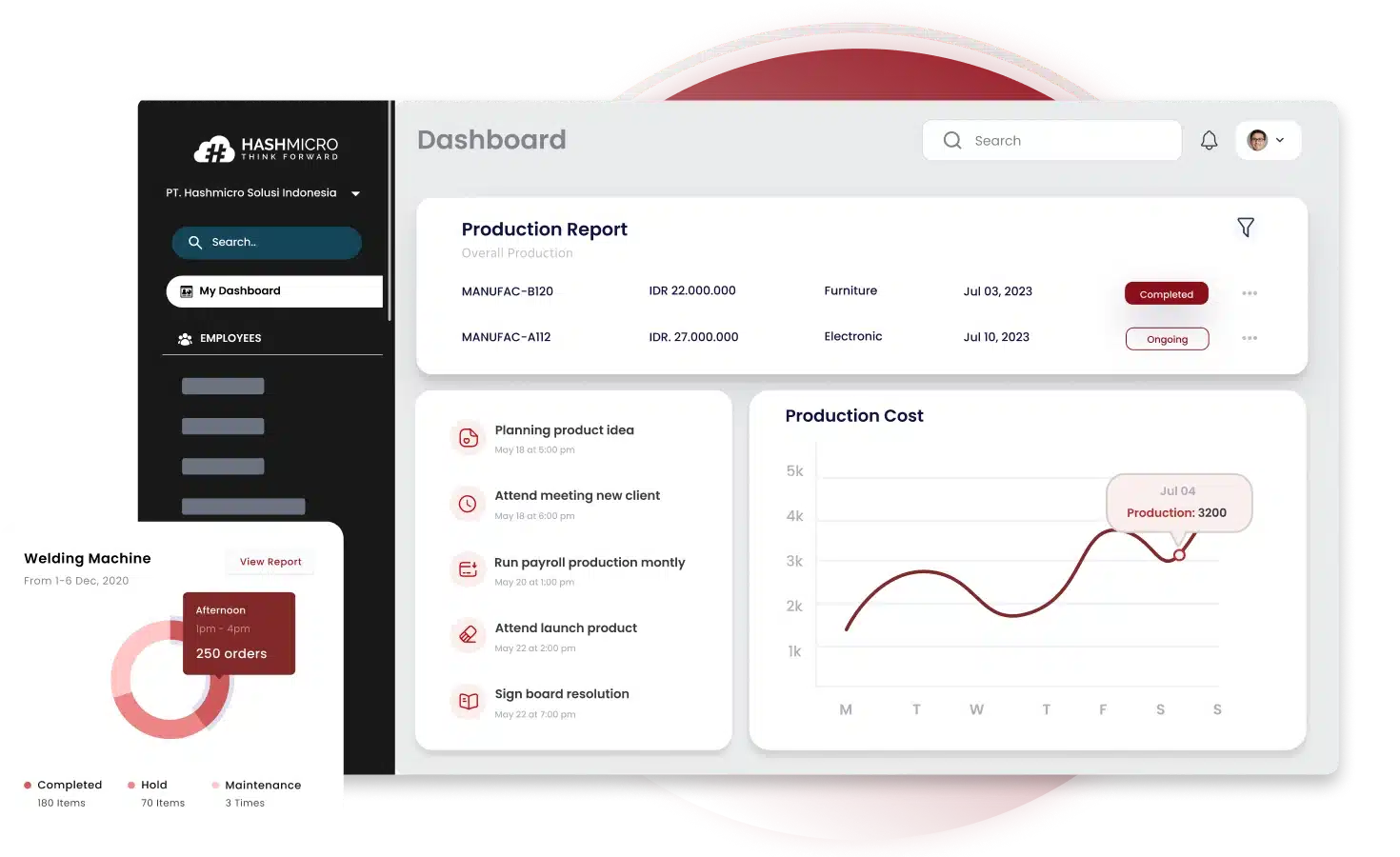Did you know that the textile industry in Singapore contributes significantly to the country’s economy, accounting for over $7 billion in annual exports? With such a massive scale of production and global competition, it becomes crucial for textile businesses to optimize their operations and drive efficiency to stay ahead in the market.
One of the most effective ways to achieve this is by implementing an Enterprise Resource Planning (ERP) software solution that is tailored specifically for the textile industry. ERP software offers comprehensive functionalities to manage various aspects of the textile business, helping companies streamline operations, reduce manual errors, improve decision-making, and ultimately, increase profitability.
Table of Content:
Table of Content
Key Takeaways
|
Challenges Faced by the Textile Industry
The textile industry faces several challenges that can significantly impact operations and profitability.
- Supply Chain Management: Managing the complex supply chain in the textile industry involves procuring raw materials, coordinating with multiple suppliers, and ensuring timely delivery. This requires efficient inventory management and collaboration with supply chain partners.
- Demand Volatility: The textile industry is often subject to demand volatility, making it challenging to accurately forecast production requirements. Fluctuations in market demand can lead to overstocking or understocking, affecting the overall supply chain efficiency.
- Product Quality and Consistency: Maintaining consistent product quality is crucial in the textile industry. Quality control processes need to be well-defined and implemented to minimize defects and ensure customer satisfaction.
- Machinery Downtime: Unplanned downtime of machinery can disrupt production schedules and result in delays. Proactive maintenance and effective asset management are necessary to minimize machinery breakdowns and improve productivity.
- Cost Management: Managing costs is a persistent challenge in the textile industry. Rising raw material prices, overhead expenses, and fluctuating labor costs require diligent cost management strategies to maintain profitability.
| Challenges | Description |
|---|---|
| Supply Chain Management | Procuring raw materials, coordinating with multiple suppliers, and ensuring timely delivery |
| Demand Volatility | Challenges in accurately forecasting production requirements due to market demand fluctuations |
| Product Quality and Consistency | Maintaining consistent high-quality products and implementing effective quality control processes |
| Machinery Downtime | Minimizing unplanned machinery downtime through proactive maintenance and asset management |
| Cost Management | Managing rising raw material prices, overhead expenses, and fluctuating labor costs to maintain profitability |
Benefits of ERP for the Textile Industry
ERP software offers a wide range of benefits for the textile industry, contributing to operational excellence and customer satisfaction.
- Better Inventory Management: ERP enables better inventory management by providing real-time visibility of stock levels, optimizing procurement processes, and reducing carrying costs.
- Quality Management: ERP facilitates effective quality management by streamlining quality control processes, conducting inspections, and ensuring adherence to standards.
- Reduction in Machinery Downtime: ERP helps in reducing machinery downtime through preventive maintenance schedules, automated alerts, and timely repairs.
- Cost Savings: ERP enables cost savings by optimizing resource utilization, minimizing wastage, and improving production efficiency.
- Customer Satisfaction: ERP enhances customer satisfaction by enabling timely order fulfillment, improving delivery accuracy, and providing excellent customer service.
How Can HashMicro Help Your Textile Business
HashMicro understands the unique needs of the textile industry in Singapore and provides tailored ERP solutions to address these challenges. Their comprehensive software offers various modules and features designed specifically for textile businesses, empowering them to streamline operations and maximize efficiency.
Production Scheduling
With HashMicro’s ERP software, you can optimize your production scheduling to ensure smooth operations and meet customer demands efficiently. The system allows you to create realistic production plans, allocate resources effectively, and monitor progress in real-time.
Manufacturing Requisition Planning
Effectively managing and planning manufacturing requisitions is vital for textile businesses. HashMicro’s ERP solution enables you to streamline your requisition processes, ensuring timely procurement of raw materials and reducing production delays.
Made to Order Completion Forecast
Accurate completion forecasts are crucial for made-to-order textile businesses. HashMicro’s ERP software incorporates advanced forecasting algorithms to help you estimate completion dates more accurately, enabling you to provide customers with reliable delivery timelines.
Finished Goods Production Simulation
Simulation capabilities offered by HashMicro’s ERP solution allow you to simulate different production scenarios and evaluate their impact on output, costs, and resources. This enables you to optimize your production processes and forecast outcomes more accurately.
Material, Labor & Overhead Costs Management
Effectively managing costs is essential for profitability in the textile industry. HashMicro’s ERP software provides robust cost management functionalities, allowing you to track material, labor, and overhead costs in real-time, identify areas of improvement, and optimize resource utilization.
OEE Tracking
Overall Equipment Effectiveness (OEE) is a critical metric for measuring productivity in the textile industry. HashMicro’s ERP solution enables you to track OEE in real-time, identify bottlenecks, and implement measures to improve machine efficiency and reduce downtime.
Multi-Level BoM
A Multi-Level Bill of Materials (BoM) is a crucial component of efficient production planning. HashMicro’s ERP software allows you to create comprehensive and dynamic BoMs, ensuring accurate material requirements planning and optimized resource allocation.
Production Order & Work Order Tracking
Efficiently tracking production and work orders is essential for managing operations and meeting customer demands. HashMicro’s ERP solution provides centralized tracking capabilities, enabling you to monitor order status, progress, and timelines, ensuring timely order fulfillment.
In-Depth Reporting and Analytics
Access to comprehensive reporting and analytics is paramount for making informed decisions in the textile industry. HashMicro’s ERP software offers robust reporting capabilities, providing you with in-depth insights into production, inventory, costs, and other key performance indicators.
With HashMicro’s tailored ERP solution for the textile industry, you can optimize production processes, improve resource utilization, and gain a competitive edge in the market. Contact HashMicro today to learn more about how their textile business solutions can empower your business.
Conclusion
In conclusion, implementing ERP software is essential for the textile industry in Singapore to achieve operational efficiency and gain a competitive advantage. ERP solutions, such as those offered by HashMicro, provide a wide range of benefits that directly impact the success of textile businesses.
One key advantage of ERP software is improved inventory management. With real-time visibility of stock levels and optimized procurement processes, textile companies can effectively manage their inventory, reduce carrying costs, and ensure timely order fulfillment.
By choosing a comprehensive ERP solution like the one provided by HashMicro, textile businesses can elevate their operations, optimize resource utilization, and achieve success in today’s competitive market. Grab the chance to try the free demo now!







































